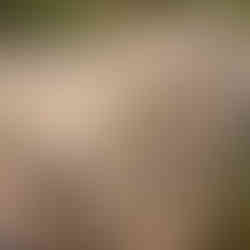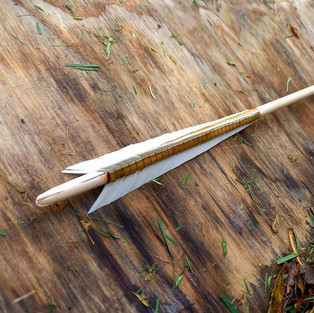A New Mary Rose Replica Arrow
- Will
- Nov 12, 2020
- 1 min read
Updated: Nov 16, 2020
This is a meticulously researched copy of MR82A1757, a small, light arrow with a maximum diameter of 11.6mm at the widest part of the barrelled shaft, made in Populus nigra (Black Poplar). The final arrow is 38g in total weight. _____
Although no complete heads have been recovered and preserved from the Mary Rose, and despite most common belief that the heads used would have probably been M2 or "Tudor bodkins" there was in fact one incomplete and heavily concreted arrowhead found, still fitted to its shaft. It was a small, light head and protruding from the concretion was in fact a tiny barb. This can only mean that the Mary Rose arrows were, at least in part, fitted with Type 16 barbed heads. _____
My replica has a barbed T16 head therefore, with a soft wrought iron socket and hardened steel barbs. The socket diameter of 82A1757 is 10.4mm and the nock diameter is a tiny 7.6mm. It is 800mm long from tip (not shoulder) to end (not base) of nock. _____
The arrow in the archives has a yellow compound, the thickness of which I have measured and reproduced using a new, more correct mixture. The 6.5" swan fletchings are bound into this compound with red silk. The delicate nock is reinforced with a 1mm thick Dorset cow horn strip, fixed with fish glue. _____
The final photo shows the nock in comparison to a 3/8" nock.
















Hi Will….how did u make the yellow pigment on the shaftment please buddy?….i would like to make some, rather than my normal green verdegris.
Col🙂👍